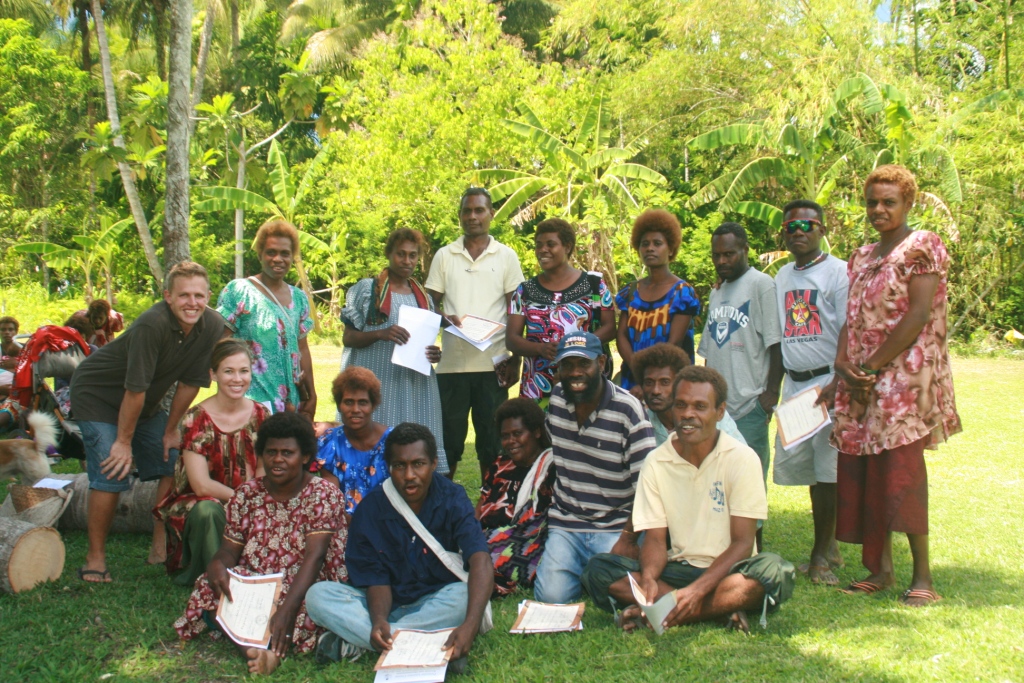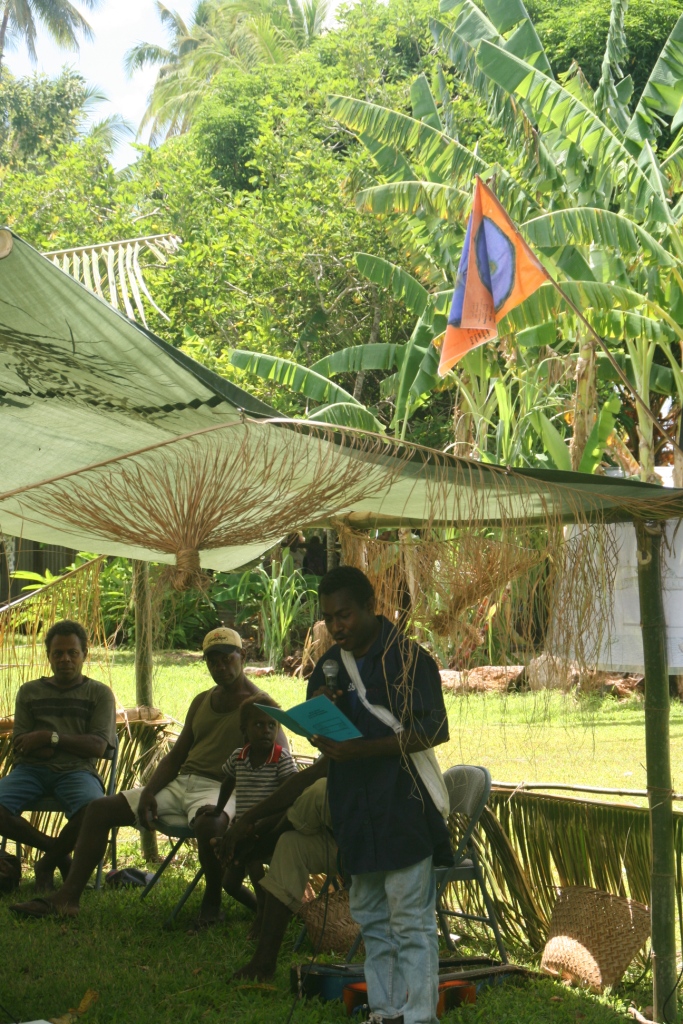
The literacy students with their certificates.
Kolmau’s speech was similar to Anna’s. He stood before the crowd with a book and a microphone in his hand. It was the day of the literacy graduation and for the first time in his life he was one of the students. Speaking into the microphone he admitted that he almost didn’t come to be a part of the literacy school. Fear of embarrassment because of the fact he couldn’t read or write was ironically what concerned him. With his wife and three young children looking on he said that now after four months, he knew how to read and write and wanted to show everybody that he could. Then opening one of the primer books, he began to read the story of the young boy who with the help of his friends overcame his fear of going to school.
We had the privilege to see the literacy program to its completion of the first graduating class. Of the 15 students, 14 of them reached a level of reading necessary to graduate. We were also thrilled to have 8 of them become trained and equipped to teach future classes.
But why a literacy class? Why the weeks and months of preparation and development of materials? Why the hours of repetitious teaching and extra tutoring? Why? Yes, it does help families to have a father and a mother who are literate and can help their children. Yes, it does help the community to further education in a developing country. But most of all, the literacy program enables them to be able to read God’s Word and opens the door for them to understand the truth.
Thank you so much for your support through these last months to that this could happen. Thank you to those of you who gave money for building materials, or who gave paper, pencils, erasers, and many other supplies for the help of the literacy school.
Writing this so you can read it,
Aaron and Lori

One small story for the audience one big story for Kolmau.